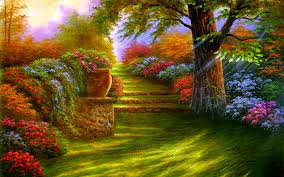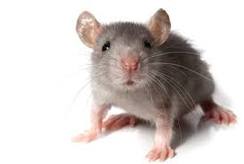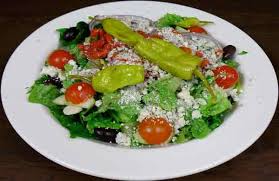 “Bereisheet Bara Elohim Et Hashamayim v’Et Ha’aretz- "In the beginning, Elohim created the heavens and the earth…” What Is My Purpose? When you awaken from sleep, is it because you’ve decided to awaken? Or, do you simply wake up when your body is finished sleeping? In sleep, there’s no deciding. Once you are awake, you are faced with the question: What shall I do? What is my purpose? Waking up itself solves nothing- There was no problem to begin with. But once awake, life becomes a problem. The universe springs into being- Does creation have a purpose? But “purpose” is itself something that’s created! “Purpose” is a thought; “purpose” is a thing. There cannot be a purpose for creation until after creation. Before, there is no problem. The universe comes into being because: Why not? Sometimes, after many months, I clean my car. My wife asks, “Why did you have to clean it now all of a sudden?” But the only answer is: Why Not? Before creation, there is no problem. After, all the problems. What is the solution to all the problems? Go back to before the problems! “Hinei Tov Me’od- Behold it was very good!” That is the Shabbat- the remembering that there were no problems before we got involved; In fact, there are still no problems. The “Before” never went anywhere, because it is not a thing. It is always right here. The Shabbat, the Garden- they were Here before Anything. From within the Garden, there is no problem with moving back into problems. From within Shabbat, there is no problem with moving back into time. Seeing from within the Garden, even outside the Garden is really still inside the Garden- For where can the Garden not be? Seeing from outside the Garden, even inside the Garden is just more of the same: “How can we manage to get back in?” “Once we get in, how can we make sure that we stay there?” But- The Garden is not “there.” Thought springs into being from No-Thought; in No-Thought, there is no problem. From No-Thought, why not think? “Eitz Hada’at Tov v’Ra- The Tree of Knowledge of Good and Bad…” Here we are amidst the trees of the Garden- Why not take a bite of the good and the bad? Of the This and the That? Of the Before and the After? But once you leave the Timeless, the Sword of Fire blocks your way back. What is the Sword of Fire? Nothing but thought! You can't decide to awaken- You can’t think your way back into the Garden- The Garden never went anywhere. But let thought cease, and you will see for yourself: The “Purpose” is to come back to No-Purpose- To the Place from which the Universe springs: “Y’hi Or- Let there be light!” To return to No-Purpose requires living with Great Purpose- The Purpose of Being Present. From There (which is always Here) We can create something beautiful- You, Me, and Others. The world is waiting! Do you not believe me? Don’t worry- it’s Friday afternoon! Click Here for more on Bereisheet- "The Pool"
3 Comments
 Once, during the days after Yom Kippur, we suspected that there was a mouse in the house. First, the strange little pieces of refuse that would show up on the floor when we knew we had already swept. Then, the little mysterious scratchy sounds I would hear when I knew everyone else was asleep. But we knew for sure when we found that a bag of leftover hallah had been chewed through. Not knowing how the mouse got in and out, we quickly became much more disciplined about putting all our food away! We could tell the mouse was still coming in, but most of the time there was nothing for it to steal. It wasn’t until Sukkot began, however, that I actually saw it. We were eating in the sukkah, when I went back into the house to get the main course. As soon as entered the back door of our house, I saw the little mouse scurry across the floor and squeeze right through a little opening below a sliding door that goes into the wall. I took some plastic bags and pushed them into the opening to block it, then used duct tape to seal it up. A temporary measure, but the mouse seems to have not returned, leaving the sanctuary of our home free from it for now. But there is another kind of sanctuary- a space in which the heart is free and the mind is clear. That space is a sanctuary from all stress, from all problems, from all tzures. That space is the present moment. It is ever available, and always right here. And yet, the ordinary human mind is unaware of this space. Living life almost entirely through the screen of thinking, this sanctuary is overrun with the “rodents” of thought. Craving some peace, one attempts to put life in order so that the rodents won’t disturb anything too much. Unaware of where the rodents are coming from, all you can do is put the food away so as not to attract them. By “putting the food away” I mean arranging your life to your liking- organizing things so that stress and chaos are kept at bay. This is a wonderful thing. I’ll tell you, our kitchen was never so consistently clean as when that mouse forced us to develop better habits! But once you see where the mouse is coming from, you can seal up the hole at its source. Meaning- once you see that the source of all chaos and worry is your own mind, you can “close the hole” through which chaos and misery enter. Then, you can still clean your kitchen if you want to, but you’re not dependant on it. Meaning- you can organize your life to maximum benefit, but even when life is chaotic externally, even when there is loss, failure and uncertainty, the Sanctuary of the Present is not lost. Your mind can be free from those “rodents” of excess thinking, and in that clarity the Sanctuary reveals itself. And yet, this is still a big secret, even for long-time spiritual practitioners! Many people enter the Sanctuary in their moments of avodah, of meditation, ritual, chanting and so on, but cannot seem to stay connected in the midst of life. In this week’s special reading for Shabbat Sukkot, Moses seems to have this very problem. Moses- the one who speaks to Hashem face-to-face, is afraid that the Divine Presence will not accompany him on his journey of leading the people (Exodus 33:12): “Re’eh Atah omer eilai, ha’al et ha’am hazeh- "See, You say to me, ‘take this people onward’, but You did not reveal whom You will send with me!” Moses is afraid that the One who sends him on his mission will abandon him. What is Hashem’s response? “Panai yelekhu v’hanikhoti lakh- "My Presence will go and give you rest!” The Presence “goes” wherever you go! That’s because the “Presence” is not something separate from your own presence, from your awareness when it is actually present. And when your awareness is present, there is “rest”. The word here for “I will give rest”, hanikhoti, has the same root as the name Noakh, the fellow who built the ark for the great flood. Whether the metaphor is rodents or destructive floodwaters, the idea is the same- there is an ark that floats above the raging waters in which you can find refuge. In the case of Moses and the Israelites, they lived in temporary dwellings on their journeys- the sukkot in which Jews everywhere are now dwelling for this holiday that commemorates the ancient dwellings of the Israelites. The sukkah is a sanctuary, yet it is hardly a solid thing. Open to the sky, vulnerable to the elements, it is really just a frame, not secure at all. And that’s the paradox- that “sealing the hole” and securing your mind from the “rodents” of thought does not mean something hard or effortful. No plastic and duct tape! It means relaxing the mind, allowing the mind to be open to the fullness of what is already present. But still, to do this constantly takes a special kind of effort that eludes most people. So much of the language of prayer is longing for the fruit of this effort! As King David says in Psalm 27: “Akhat Sha’alti me’eit Hashem- "Only one thing I ask of You, Hashem, that I should dwell in Your house and meditate in Your sanctuary all the days of my life!” The Sanctuary of Presence is ever-present, yet it is so easy to block it. Think of this- the sun is 864,938 miles in diameter, yet you can block its view entirely with just your little hand. And yet, even while you are blocking the Presence, the blocking is itself happening in the present! The only thing blocking God, ultimately, is God- as God tells Moses a few verses later (Exodus 33:22): “It will be when My Glory passes, I shall place you in a cleft in the rock and shield you with My hand…” When our fleeting and immaterial thoughts hide the “Glory” of this passing moment, hardening the openness of the present into what feels like a narrow cleft of rock on all sides, remember: Your thoughts themselves are also part of this moment. Accept them with openness and let them pass as well. In accepting and releasing your thoughts, they can dissolve, revealing the open space once again, as Hashem says next: “Then I will remove My hand and you will see my ‘back’…” Meaning, you will see in retrospect that your thoughts blocking the Sanctuary are themselves part of the Sanctuary. They are part of the reality of the present moment. But the more simple and direct path is simply to bring your attention to literally anything physical that is already present. The more you train yourself to do this, the more you will become aware of the space behind whatever is present- the ineffable openness that is the present moment. There is a story of Reb Shneur Zalman of Liadi, that once he asked his son what he “prays with”. The boy answered that he inspires himself with the verse, “Every form shall prostrate itself before You.” The boy then asked the rebbe, “What do you pray with, Abba?” The rebbe answered, “I pray with the bench and the floor.” On this Shabbat Sukkot, may we commit our attention ever more deeply to the bench on which we sit and the floor on which we stand, that we might open ever more deeply to the Sukkat Shalom- the Space of Peace that is this moment in which we now live. Good Shabbos!  Once, my son told me about a show he saw on food waste. He learned that in our country alone, every person wastes a staggering twenty pounds of food per month! And yet, with a little more consciousness and care, much of the wasted food could be put to good use. To illustrate the point, they assembled a group of folks and served them a gourmet salad. They asked the group to rate the salad, and everyone loved it. Then, they revealed the truth: the salad was made entirely out of food waste! A gourmet chef was given food that is normally considered waste- peelings, stems, stalks and other items that are usually discarded. The food scraps were cut, peeled, marinated, pounded and transformed into something the group perceived to be not only edible, but a unique and delicious gourmet dish. It’s a good thing that the human mind can differentiate between food and garbage, between “wheat and chaff”, between nourishment and poison. But the shadow side to this dualistic thinking is that we tend to develop a rigid narrative about what is good and usable, and what needs to be thrown away. Or, sometimes the opposite happens- Out of fear that something valuable might be lost, some people become hoarders, surrounding themselves with far more junk than they could ever use. But what if the human mind could be flexible enough to fully use whatever is present? Not hoard for another day, and not look at a fridge partially filled with odds and ends and decide, “there’s nothing to eat!” One time, I was away with my son and my wife Lisa was home alone for a few days with our daughter. Lisa thought, “I wonder if I can avoid going shopping and just live off whatever is in the house?” Guess what- she did! No shopping that week. They were fine. When the mind is full of rigid preconceptions, it’s impossible to see the full potential of what is present. But get some space around your thoughts (like send the boys to Arizona!), connect with what is really here in this moment, and new possibilities open up. There are little miracles waiting to happen. But to open up this space and become present, you need to bring together the two opposite poles of your being- consciousness and flesh. Ordinarily, human consciousness tends to congeal into a constant stream of thinking, taking the thinker into all kinds of imagined realities, while the body is left to deal with the here and now. The eyes are looking in the fridge, but the mind is thinking about something else! This week’s reading begins with Moses’ words to the Israelites: “Ha’azinu hashamyaim va’adabeirah- Give ear, O Heavens, and I shall speak- “V’tishma Ha’aretz imrei fi- And listen, O Earth, to the words of my mouth.” The “Heavens” and the “Earth” are metaphors for these opposite polls of our being. When mind is extricated from the relentless narratives of thought and brought into intimate connection with the body, then the mind and body can “listen” together as one. When that happens, the “secrets” that are hidden in plain sight can be revealed. These “secrets” are ever-present, as it goes on to say- “Let my teaching fall like rain, let my utterance flow like dew, like storm winds on vegetation, like raindrops on blades of grass…” Torah is everywhere, soaking everything like rain, blowing through everything as the air we breathe. But to see it, to hear it, you have to open to it. Opening means: there must be an opening in your thoughts, so that your awareness and your body can fully join together. When that happens, there is no more sense of “me” as the thinker and “my body” that “I” inhabit. That separate “I” drops away. There is a hint of this in the concluding verses of the parshah: “Aley el har… ur’eh et eretz… umoot b’har… Ascend the mountain… see the land… and die on the mountain…” “Ascend the mountain” means to rise above your thinking mind. “See the land” means to really see what is right here before you, now. “Die on the mountain” means that when you rise above your mind and yet connect fully with your body, your ordinary thought-bound self can drop away. This is the deepest freedom- freedom from the sense of “me” as a separate entity that is living in “my” body. And when there is no more separate "me", what is left? This can’t really be described, because language itself is rooted in thought, which is the basis for separateness. But there is a hint in this parshah: “He is suckled with honey from a stone, and oil from the hardness of a rock…” In other words, what seemed to be dead is bursting with life. Everything is miraculous, everything is nourishing. Rabbi Moshe Hayim Efraim, the grandson of the Baal Shem Tov, told a story in the name of his grandfather: “Once there was a fiddler who played so sweetly that no one who heard the music could resist dancing. One time, a man walked by a house where the fiddler played and he saw people dancing through the window. He couldn’t hear the music they heard, and so he thought they were madmen, flailing their bodies about tastelessly.” As we approach the joyful and celebratory days of Sukkot, may we hear the music of Existence that plays all around us and within us. May we be like the sukkah- an open form, a beautiful frame, without much differentiation between “inside” and “outside”. And as we leave behind the day of fasting, may we take care to fully use and share what we have, nourishing each other and minimizing our food waste. If you haven’t already, make the fast of Yom Kippur real by donating to your local food bank or other relief organization. Take a moment and give tzeddaka now! Moadim L’Simkha! Good times! love, -brian yosef  Once, my wife and mother-in-law were giving a bath to our three-year-old daughter. A few minutes after she got in the water, she looked up and said, “Um, could you guys please put some toys in here so I don’t have to play with my feet?” The mind loves things to play with. As children we call those play objects toys. As adults, we have different names for them, but they are essentially the same. They are stimulation. They are external content that we become fascinated with. We don’t want to just “play with our feet,” or even worse, have nothing to play with at all. What could be worse for a child than to have to sit still, be quiet and do nothing? The mind craves and needs stimulation. For children, this stimulation is essential for the healthy growth of their brains, and so stimulation must be almost constant. But at some point, that changes. At some point, you might notice: all the stimulation, all the thinking, all the experiencing, wonderful and essential as they are, can be like the flaming sword of the keruvim, guarding the entrance to Gan Eden- the entrance to paradise. At some moment, and maybe that moment is now, you notice: There is an inner depth so vast, so beautiful, so alive, if you would only put down your toys and open to it. That vastness is your own inner Divinity- Eloheikhem- it is awareness meeting the truth of the present moment- Eloheikhem Emet. But many people never discover this, and remain identified and entangled in the noise of mental toys, in the mind’s perpetual narratives. This creates an experience of separateness, of craving for the wholeness that is actually there all along, beneath the mind. That craving can lead to great inner disturbance, and ultimately, all of the horrors that still plague humanity. What is the remedy? In the Talmud, Rabbi Levi Bar Chama says in the name of Rabbi Shimon Ben Lakish that when you feel yourself gripped by unwholesome motives, you should study some Torah (Berakhot 5a). In other words, study some spiritual teaching that puts you in touch with your inner Divinity, just like you are doing right now. For the aim of spiritual teaching is not just to convey information, it’s to awaken your higher potential. But, if that doesn’t work, he says to chant this verse: “Sh’ma Yisrael Hashem Eloheinu, Hashem Ekhad- "Listen Israel, Existence Itself is your own inner Divinity; there is only One Existence.” In other words, stop and become aware that God is not something “out there” or separate. All you need do is “listen” because this moment is nothing but God, if your thinking mind would relax. And if that doesn’t work, there’s one more trick: Think of your own death. The irony of children is that, on one hand, they are such bright little explosions of life, free and unencumbered by the heaviness that so many adults carry around with them. And, at the same time, they are so utterly obsessed with things that are really trivial, as anyone knows who has had to negotiate “sharing toys” with three-year-olds. But as adults, despite the years of psychic crust we accumulate in our nervous system, there is this tremendous opportunity for depth when we let go of everything. That is the contemplation of death. We will all die, but we can die before we die, surrendering into the reality of this moment, letting go of the story of “me”. This week’s reading begins shortly before Moses’ death: “Vayelekh Moshe- "Moses went and spoke these words... ‘Hayom lo ukhal…’- ‘today it is no longer possible for me to go out and come in…’” When you live on the surface, in the mind’s narratives, there is this sense of “me” going here and there, doing this and that. But in hayom- in the “today”- there is no longer a “me” coming and going. In the present, you live from your depths that are far beyond your personal story. This is the death before you die. It is said that a heavenly voice told the Baal Shem Tov he would be denied life in the World to Come for some small sin he committed. When he heard this news, he jumped for joy and danced. “Why are you so happy?” said the heavenly voice. “Because now I can serve God for its own sake, without ulterior motive.” In these days of teshuvah, leading to Yom Kippur- The Day of At-One-ment, may our commitment to live from our depths become ever more deep, and may that depth be revealed in our thoughts, words and actions. May we speedily see a day when all of humanity lives and loves from its true depth and potential! Good Shabbos, and g’mar hatimah tovah- May you be inscribed for all good things! -b yosef |
Archives
July 2024
|
 RSS Feed
RSS Feed